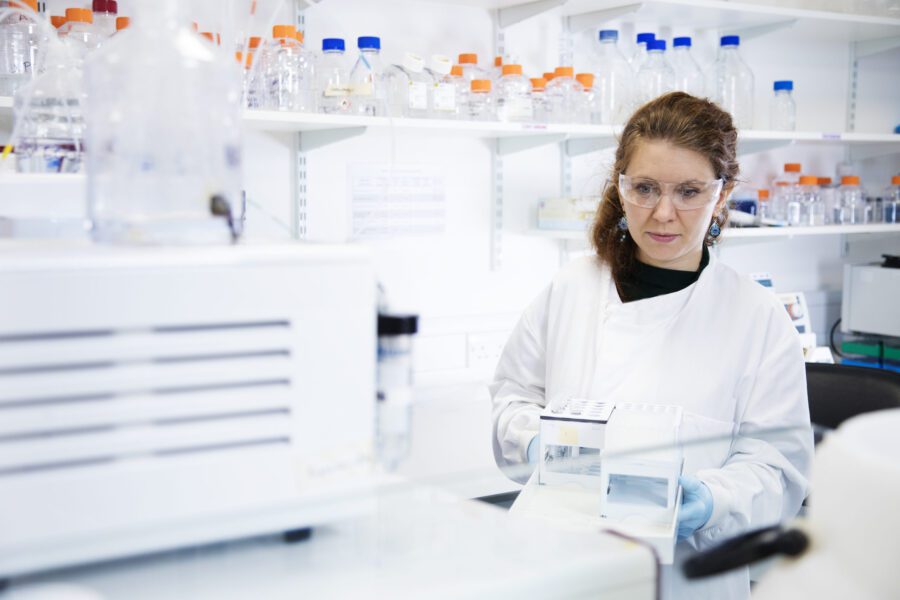Why Abzena?
Our focused approach.
Authors:
Jeffrey Mocny, PhD- VP of Regulatory Strategy, Abzena
Stephen Verespy, PhD- Scientific Leader, Abzena
Antibody-oligonucleotide conjugates (AOCs) are an emerging and exciting development in precision medicine. AOCs combine the specificity of antibodies with the gene-modulating potential of oligonucleotides, allowing them to effect gene expression within targeted cells. This dual capability addresses the challenges in oligo drug delivery, opening the door to more precise interventions with reduced off-target effects.
The development and manufacturing of AOCs isn’t as straightforward as it might seem, compared with an antibody-drug conjugate (ADC). AOCs integrate two fundamentally distinct and individually complex biomolecular entities: the antibody and the oligo. Achieving this requires expertise in protein engineering, oligo chemistry and bioconjugation strategies. The challenges are substantial, spanning sequence fidelity, conjugation stability and impurity management.
The complexity and distinct chemical differences between the two components is where scientific ingenuity becomes necessary. For drug developers, the goal is to maintain the desired functionality of each component, while ensuring both efficacy and manufacturability. This novel modality has the potential to be transformative for a range of hard-to-treat conditions, but success hinges on understanding and overcoming intricate chemistry and analytical challenges.
An AOC combines the cell targeting precision of an antibody moiety with the gene expression modulation capability of a functional oligo. This ability to directly alter cellular function means they can:
AOCs offer the potential of precise delivery across complex barriers such as the blood-brain barrier and are treatment options for neurological diseases. In oncology, they could be deployed to directly target cancer-driving genes. When used to treat rare genetic disorders, AOCs help to overcome the systemic challenges of oligo delivery, in particular when it comes to delivery beyond the liver. Overall, AOCs’ are promising candidates to address many currently intractable diseases, realizing the promise to “drug the undruggable.”
The successful development of AOCs requires precise control of both the oligo chemistry and the bioconjugation process that links the oligo to the antibody. Both areas present different challenges that must be addressed to create a functional and stable conjugate.
